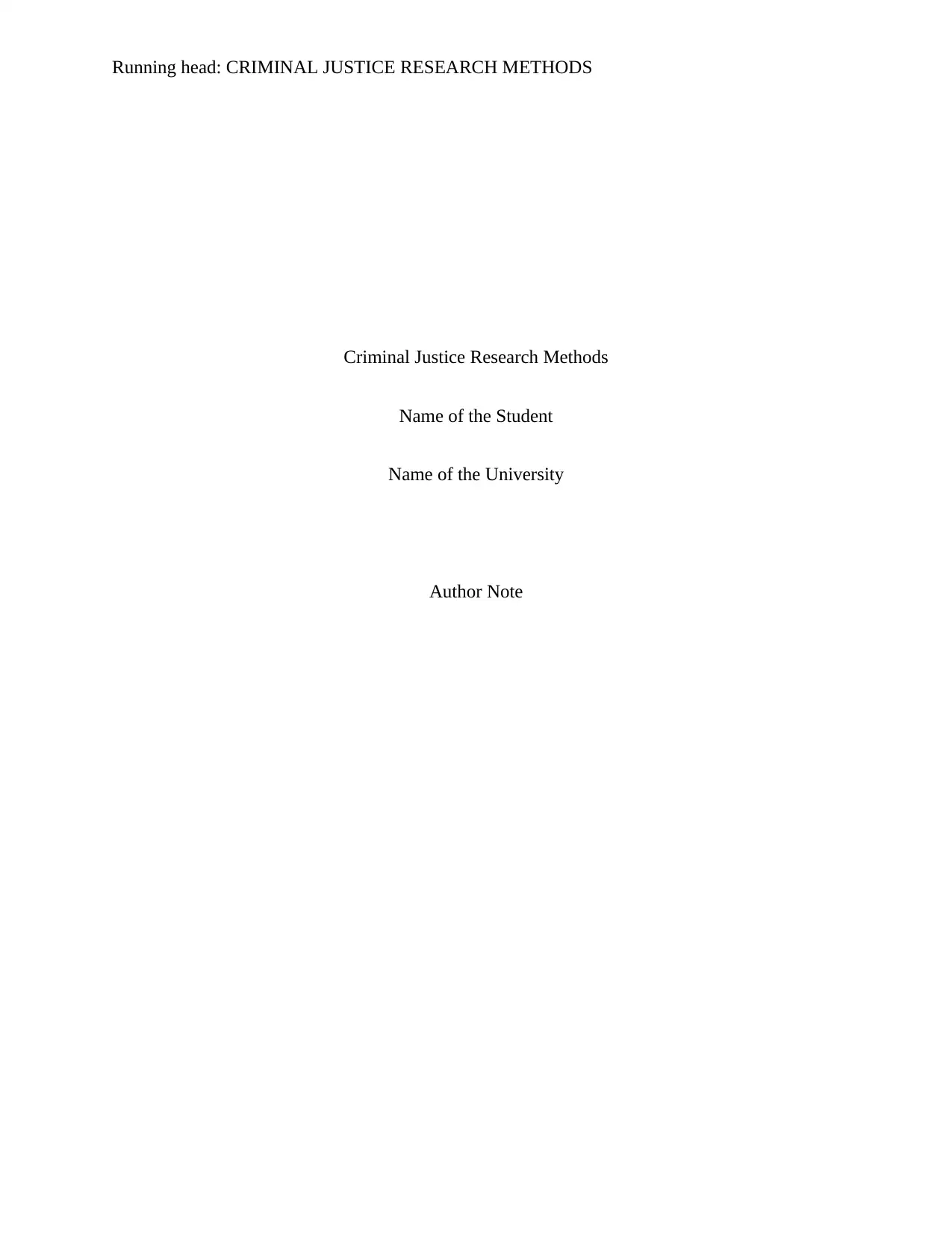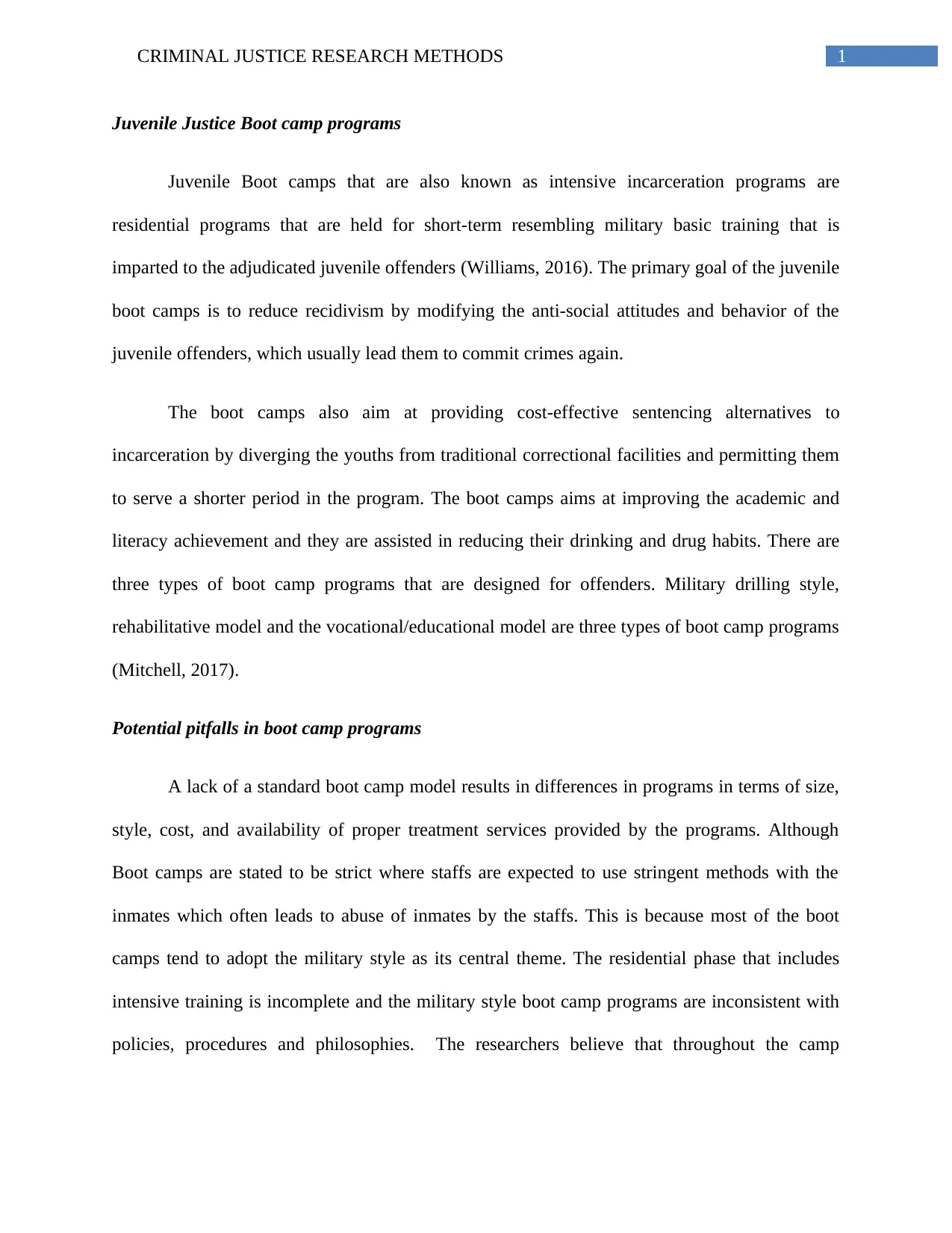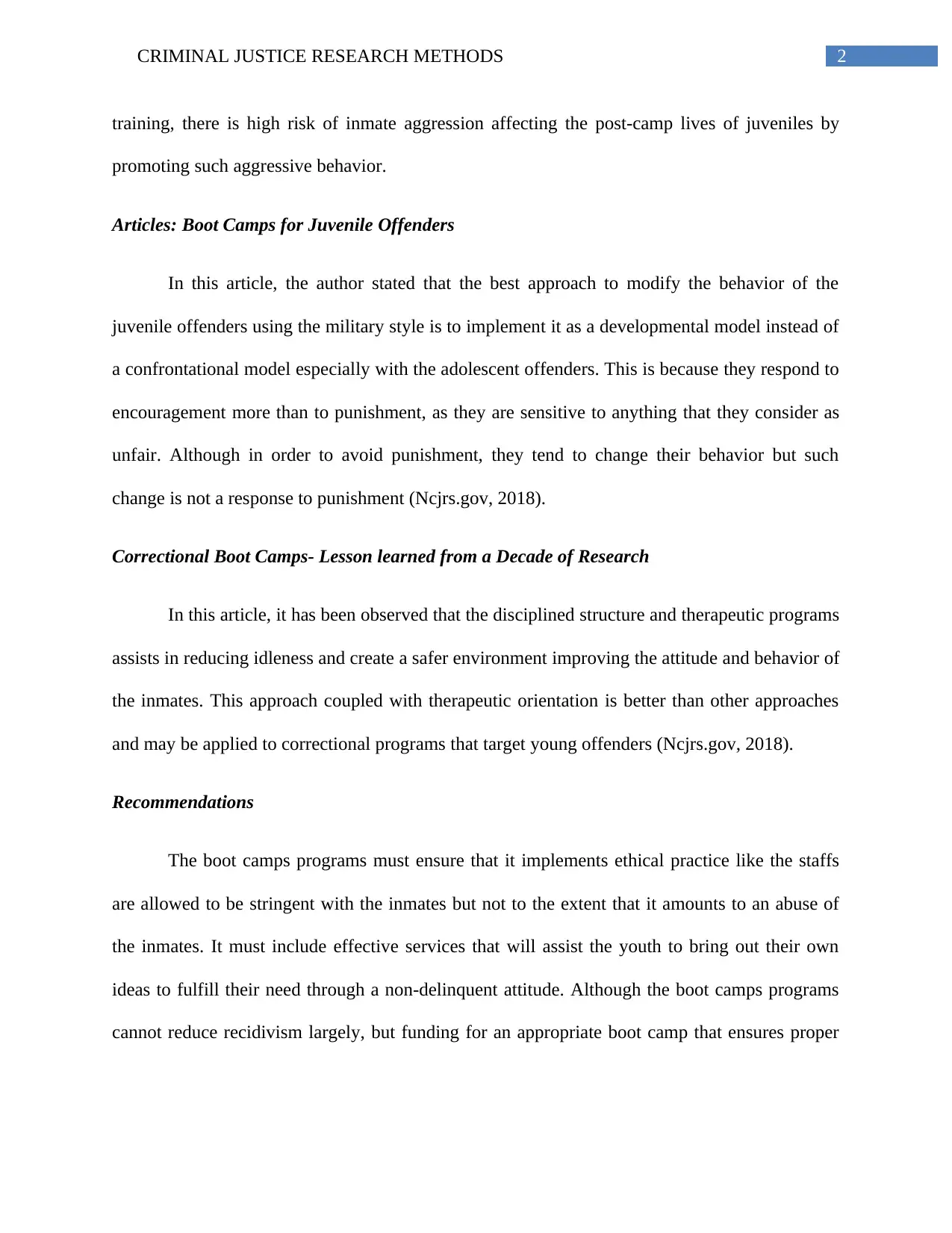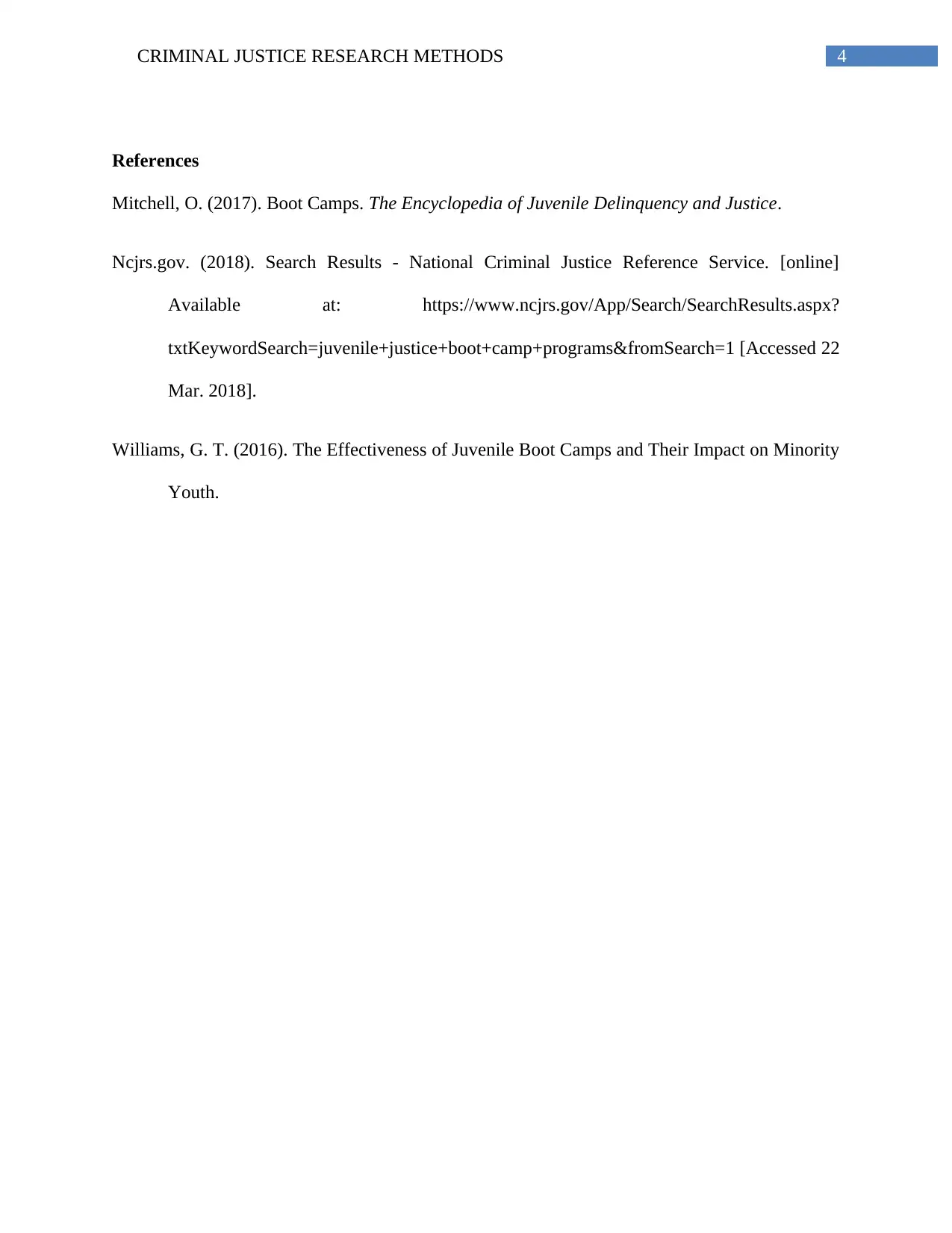Analysis of Juvenile Boot Camp Programs: Research Methods Report
VerifiedAdded on 2021/04/21
|5
|697
|53
Report
AI Summary
This report examines juvenile boot camp programs, also known as intensive incarceration programs, within the context of criminal justice research methods. The report begins by outlining the goals of these programs, primarily to reduce recidivism by modifying the antisocial behaviors of juvenile offenders and providing cost-effective alternatives to traditional correctional facilities. It then details the different types of boot camp programs, including military drilling, rehabilitative, and vocational/educational models. The report also addresses potential pitfalls, such as the lack of standardized models leading to variations in program effectiveness and the risk of staff abuse. The analysis incorporates insights from relevant articles, emphasizing the importance of developmental approaches over confrontational ones, particularly for adolescent offenders. The report concludes with recommendations for ethical practice, effective services, and proper funding to ensure the programs fulfill the needs of juveniles, fostering a crime-free life.
1 out of 5







![[object Object]](/_next/static/media/star-bottom.7253800d.svg)